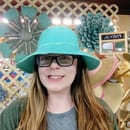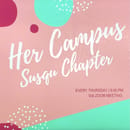Female heroines are fun and all, but it’s always the villains that have the best quotes, scenes, and backstories. Heroes are expected to act a certain way, to be perfect stereotypes all the time. It’s the villains that get to do whatever they want. This independence is rightly deserved until it’s twisted and abused. While villains’ actions can’t be justified, their development in literature, TV, and film has been important to the feminist movement.
1. They know the importance of self-care
This is self-care taken to the extreme. We see heroines such as Hermione Granger, Elastigirl, Kara Zor-El, and Katniss Everdeen among others constantly exhausted from taking care of everyone else. They are tired of being “good guys” all the time. Since they are expected to help everyone, these women never have time to be kind to themselves. Female villains, such as Maleficent or Regina George, always make time for what they care about. Sure villains are too focused on selfish pursuits, but at least they are self-confident!
2. They always have goals
Where female heroines are either concerned with saving their love interests or their families, female villains rarely have such standard goals. They serve their own self-interests, whether that’s taking their rightful place as queens, emperors, political titans, or just people who should be taken seriously. Female villains always know what they want and are focused on getting it. Ambition gets them what they want, and that’s why they usually succeed before the heroes do.
3. No one tells them what to do
While there are some truly evil female villains out there, such as Cersei Lannister, I do applaud these fictional characters for admitting their own faults. Usually this is when a character arc is about to happen and they are going to become heroes. For example, on the TV show Once Upon a Time, Regina George was the first to admit that she was evil and wanted to change. Her dedication to this goal was truly staggering. Her character is reovlutionary for proving that sometimes violence does achieve goals, mainly because Regina was never taken seriously until she became evil. She proved that it’s impossible to always do the right thing.
4. Sometimes their motives are rational and pure
None of these women were born evil. Female villains are often created as a result of patriarchal systems in their stories. Most often these women just want to be heard and sacrifice their souls to evil in order to fulfill their goals. Often times a villain will become evil in exchange for a friend or family member being saved. Female villains become lost along the way and don’t understand that they’ve become cold-hearted because they’re so focused on their dreams. Female characters like this are important as they demonstrate that all women need a little help sometimes and we all get lost in life.
5. They break barriers
Whenever a fictional female gains power, it inspires real-life women to do the same. While growing up, the women I saw breaking barriers and accomplishing impossible goals were often villains. Female villains aren’t afraid to take risks and challenge the men in power. For example, Maleficient had no problem commanding respect from King Stephen. He was a king, but Maleficient knew that she deserved a show of respect no matter what.
6. Some of the most powerful women are villains
Ultimately when female fictional characters are villains, they have more room to do whatever they want. For example, female heroines are confined to a clothing standard. They either have to dress purely or provocatively. However, female villains dress however they want, even if it makes other characters uncomfortable. It shouldn’t matter how the other characters feel because, at the end of the day, Ursula rocks her underwater corset/pantsuit.



